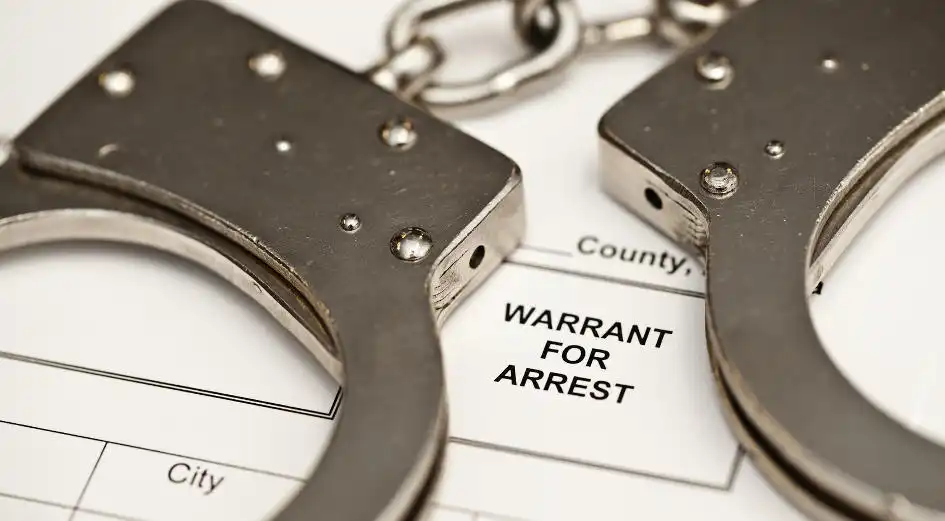Bench & Arrest Warrants in California - What You Need to Know
Whether you're facing an outstanding warrant or trying to help someone else, an active warrant in California can dramatically affect your life, including your driving privileges, employment opportunities and personal freedom. If you are searching for a "California DUI lawyer", "DUI defense attorney", or specifically a "truck driver DUI attorney in the Bay Area," here's what you need to know about bench and arrest warrants under California law (2025) and how the right criminal defense attorney can help protect you.
What is an Arrest Warrant in California?
An arrest warrant is a court-issued order authorizing law enforcement to arrest a specific person for a crime. In California, once a judge or magistrate finds probable cause to believe that a person committed a crime, the arrest warrant is issued.
Key points:
- The warrant must identify the person to be arrested and specify the crime(s) charged.
- After arrest, the defendant is typically brought before a magistrate for arraignment.
- While many people associate warrants only with new charges, an arrest warrant may also arise during the investigation process.
Consequences of an outstanding arrest warrant can include immediate arrest at home, work or during routine traffic stops — including for drivers in the Bay Area, which means serious risk for commercial drivers or anyone with a CDL license.
What is a Bench Warrant in California?
A bench warrant is issued by a judge (from the "bench") when a person fails to comply with a court order or appear for a required court hearing. It does not necessarily relate to a new crime being alleged but rather to a failure to comply with prior court obligations.
Under California Penal Code § 978.5:
- When a defendant fails to appear for a required court appearance (arraignment, hearing, sentencing) a bench warrant may be issued.
- The warrant may be served in any county in the same manner as an arrest warrant.
- A bench warrant may be issued for misdemeanors or felonies, and can lead to arrest anytime until recalled or quashed.
Common causes include: failing to appear in court, failing to pay fines or restitution, violating probation, or failing to comply with court-ordered programs.
Have an outstanding warrant? Don't risk being arrested unexpectedly. Contact us immediately to explore your options for quashing or recalling the warrant.
Why An Outstanding Warrant Is Serious — Especially for Drivers and DUI Cases
If you have an arrest or bench warrant in California, especially in the Bay Area, you face a number of risks:
- Immediate risk of arrest: Law enforcement can take you into custody at any time. Even a routine traffic stop may trigger your arrest if the warrant is discovered.
- Increased penalties: Failing to appear in court can result in added charges (e.g., "failure to appear"), longer jail time, and higher fines.
- Driver's license and employment issues: For any driver—especially CDL or commercial drivers—a warrant can jeopardize your license, your job, or your ability to secure work. If you're searching for a "truck driver DUI attorney in the Bay Area," it's particularly critical to clear any warrant quickly.
- Professional and personal consequences: Being arrested can affect background checks, housing applications, reputation, and more.
- Complications in DUI defense contexts: If you're already dealing with DUI defense or a "California DUI lawyer" case, an outstanding warrant complicates your case strategy, your bail options, and could limit ability to negotiate favorable outcomes.
The Legal Process in California & What You Should Do
If you or a loved one has a warrant, the following outlines the typical process and how a seasoned criminal defense attorney can assist.
1. Verification of the Warrant
First, confirm if a warrant is active, and whether it's a bench warrant or arrest warrant. Checking court records or having your attorney verify through the clerk's office is critical.
2. Quashing or Recalling the Warrant
In California, one of the best outcomes is to have the warrant quashed or recalled, so you avoid immediate arrest and get a court date set. For example:
- A motion may be filed by your attorney asking the court to quash a bench warrant.
- For arrest warrants, your attorney may negotiate voluntary surrender or a scheduled court appearance rather than being forcibly arrested.
3. Voluntary Surrender (When Applicable)
Many experienced Bay Area "DUI defense" attorneys will arrange a coordinated surrender with law enforcement or the court to reduce surprises and reduce adverse consequences.
4. Representation in Court and Defense Strategy
Once the warrant issue is handled, the next step is defending the underlying case (whether the warrant was for a missed hearing in a DUI matter, or a new criminal charge). The attorney will protect your rights, argue for release/bail, and develop strategy — for example whether you're a commercial driver with a CDL and facing DUI issues.
5. Special Considerations for Commercial Drivers and DUI
If you're a truck driver or commercial driver, there are heightened stakes: an outstanding warrant plus a DUI or CDL-related proceeding can result in license loss, employment termination, heightened fines and serious long-term impact. Engaging a "truck driver DUI attorney in the Bay Area" early is imperative.
Key California Laws to Know
- Penal Code § 978.5 defines when a bench warrant may be issued for failure to appear.
- Penal Code §§ 1320 & 1320.5 address failure to appear in court and classify it as misdemeanor or felony, depending on circumstances.
- Penal Code § 853.8 sets a timeframe (20 days) after a person fails to appear for the court to issue a bench warrant when they signed a written promise to appear.
- Warrantless arrests under Penal Code § 836: Even without a warrant, officers may arrest under certain conditions. This underscores the need to clear warrants before law enforcement acts.
Why Choose Our Bay Area Criminal Defense Firm for Warrant Matters
For individuals in the Bay Area and across Silicon Valley, our firm offers:
- 20+ years of experience in criminal defense and warrant removal (including DUI and CDL-driver matters)
- A strong track record in quashing/recalling warrants, arranging voluntary surrender and defending in court
- Special expertise in driving-related offenses: whether you're facing a "California DUI lawyer" case or need a "truck driver DUI attorney in the Bay Area" who understands CDL rules and employer consequences
- Local court relationships, knowledge of Bay Area jurisdictions, and tailored strategies for drivers, professionals and commercial operators



